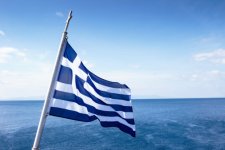voula_slat
Active member
It's crazy to think that something I've come to value so much about modern Greek people is actually from the ancient Greeks. Does anyone know where, when or from whom the concept of philotimo emerged in Ancient Greece?
Follow along with the video below to see how to install our site as a web app on your home screen.
Note: This feature may not be available in some browsers.

